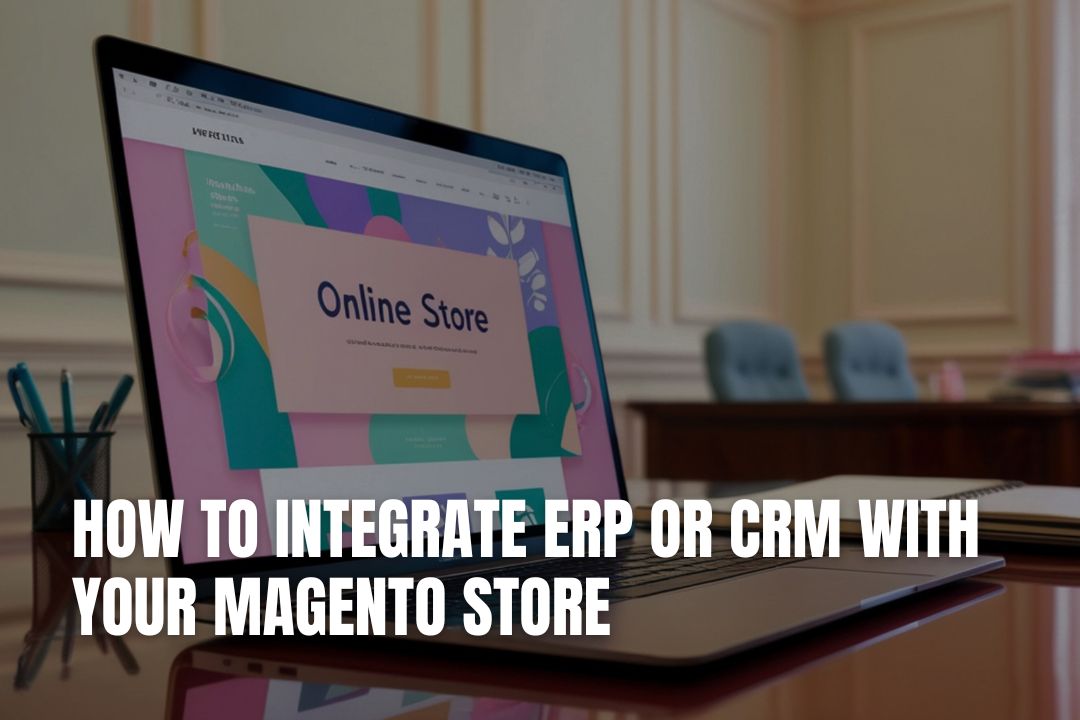
Efficiency and automation have surfaced as the core issue in this fast changing eCommerce landscape. Multiple disconnected systems hindering your eCommerce operations might cause data inconsistencies, delay orders, and dampen customer experience. Here, ERP and CRM integrators come into view, helping you consolidate data, smooth out workflows, and bring in revenue for your business.
Being a store owner on Magento, an integration of ERP or CRM could redefine the whole way you work, in a way that enhances precision and efficiency. With our assistance, you will learn everything about ERP and CRM integration, including their benefits, and will be guided on the process from start to finish to ensure an easy integration with your Magento store.
Magento is a robust, scalable eCommerce platform that makes an excellent storefront interface. For the back-office processes such as inventory management, accounting, logistics, or Customer Relations, systems external to Magento, such as ERP and CRM, come as a need of the hour. It is the integration of such solutions that acts as a linking bridge between your storefront and backend operations.
Interlinking an aim between Magento and ERP/CRM, companies save time and operate on minimizing costs and focusing on growing the businesses instead of manual management.
Before getting involved in any integration process, it is essential to select the actual system that fits one's business needs.
A digital commerce agency with Magento Development Services can debate your business objectives and propose the most suitable CRM integration strategy option.
Integrating Magento with an ERP or CRM is highly complicated if your workflows are unique. Still, one can make this easier by following a well-structured approach.
But first, take a moment to think about what you expect to get out of an integration:
Clear objectives will help focus the range of integration and decide on appropriate tooling.
There are basically two different paths of Magento integration with ERP or CRM:
Data flow will have to be clearly defined between Magento and your ERP or CRM system. Common data points are:
Data mapping will make sure the systems remain consistent and accurate throughout.
Once everything is configured, perform thorough testing:
Testing will allow you to identify and resolve these issues before going live.
Monitoring begins after successful implementation; watch over:
Maintenance and updates will make certain your integration performs well and remains secure.
When done right, the integration of ERP and CRM brings several advantages for your eCommerce business:
Say goodbye to manual entry as integration handles automatic synchronizing of order processing, inventory management, and customer data.
With data centralized between systems, real-time observations help you make better decisions ranging from forecasting demand to identifying loyal customers.
Customer relationship management integration equips personalized marketing, fast response times, and after-sales support. This strengthens customer loyalty.
ERP integration ensures stock levels and purchase orders, and financial reports are updated in real-time, minimizing the risk of stockouts or overselling.
The integrated system can, as your business grows, support increased orders and customer data without any performance problems.
This really went well with the above paragraph. At Magneto IT Solutions, we provide Magento Development Services tailored to businesses so they can scale and automate their operations. Being trusted Odoo partners and a full-fledged digital commerce agency, we help eCommerce brands seamlessly integrate ERP and CRM systems with Magento-based stores.
Whether it is Odoo, Salesforce, or Microsoft Dynamics that you want to connect with your Magento store, we guarantee to integrate your system in the safest, most secure, and most efficient manner that meets your business requirements. Custom API development or real-time data synchronization, whatever fits your movement, we make sure that our solutions drive sales and performance for you.
Coupling your ERP or CRM with your Magento store is about more than a mere automation process; rather, it is creating a connected ecosystem where all business elements interact with one another effectively. Order management and customer relationships-all handled through these integrations provide Oculus for the operations and give room for improvement and expansion.
Bhumi's Author Bio.
Bhumi Patel has vast experience in Project Execution & Operation management in multiple industries. Bhumi started her career in 2007 as an operations coordinator. After that, she moved to Australia and started working as a Project Coordinator/Manager in 2013. Currently, she is the Client Partner - AUSTRALIA | NEW ZEALAND at Magneto IT Solutions - a leading Magento web development company in Australia, where she works closely with clients to ensure smooth communication and project execution, also forming long-term partnerships. Bhumi obtained a Master of Business Administration (MBA) in Marketing & Finance between 2005 and 2007.
Think of it this way: an ERP (Enterprise Resource Planning) system helps you manage your core business operations like inventory, accounting, and logistics. A CRM (Customer Relationship Management) system, on the other hand, focuses on managing your interactions with customers, including sales, marketing, and service.
This depends on your specific needs. Pre-built connectors or middleware are great for standard integrations and can be quicker to set up. However, if your business has unique workflows or requires very specific data points to be synced, a custom API integration will offer more flexibility and control.
You should prioritise syncing the most critical data points for your operations. This typically includes product information (like stock levels and pricing), customer data (contacts and order history), order details (status and invoices), and shipping information to ensure consistency across all platforms.
By integrating a CRM, your sales and support teams get a complete, up-to-date view of every customer. This allows them to provide personalised assistance, respond to queries faster, and engage in targeted marketing, all of which helps build stronger customer loyalty.
Yes, working with a digital commerce agency can be very helpful. Experts like the team at Beacon Inside can analyse your business objectives and recommend the most suitable ERP or CRM, along with the best integration approach, ensuring the project aligns perfectly with your goals.